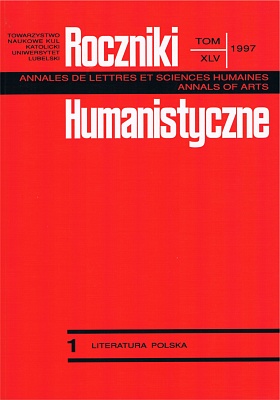Modyfikacje frazeologii biblijnej
Abstrakt
In Polish, as in other languages, many of the phraseological expressions come from the Bible. Some of them do not change, e.g. arka przymierza (the Ark of the Covenant), ziemia obiecana (the promised land), although most of them are submitted to various modifications. Older forms and words are replaced by new ones, e.g. płacz i skrzytanie ząb → płacz i zgrzytanie zębów (and there will be wailing and grinding of teeth), nie wiecie dnia ani godziny → nie znacie dnia ani godziny (you do not know when the time will come), (nie zostanie) kamień na kamieniu (leave no stone upturned) → cegła na cegle (brick upon brick). Some of these expressions become shorter, e.g. (zawiesić) kamień młyński u szyi → kamień u szyi (a millstone around his neck), some enlarged, e.g. (pracować) w pocie czoła → w krwawym pocie czoła (by the sweat of your face shall you get bread to eat).
Phraseological expressions are as well modified in the translations of the Bible. In the new Polish translation − know as the Millennium Bible (Biblia Tysiąclecia) − even many of the phraseological expressions from the 16th century translation of the Bible (known as the Wujek Bible), used in contemporary Polish, e.g. sądny dzień, nie wie lewica, co czyni prawica, were replaced by others: dzień sądu, niech nie wie lewa twoja ręka, co czyni prawa (do not let your left hand know what your right is doing).
Copyright (c) 1997 Roczniki Humanistyczne

Utwór dostępny jest na licencji Creative Commons Uznanie autorstwa – Użycie niekomercyjne – Bez utworów zależnych 4.0 Międzynarodowe.





